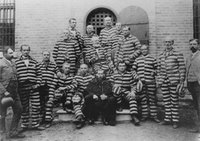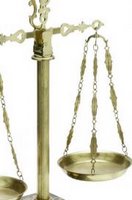
Here's the question - is it LEGAL to expose a cheater or abuser online? I remind you that this piece contains my personal OPINION only and was written for the purpose of consideration and discussion.
In short, it appears the current answer is YES. But this could change in the very near future.
Most of these type of sites have rules for exposing the people listed. The current interpretation seems to say if you have proof to back up what you say, and it is truthful, it is not libel or slander. But remember, laws can be changed with enough pressure.
Dontdatehimgirl.com recently had a group attempt to launch a lawsuit against them. Guess what happened? Other than whining & moaning about how the cheaters and their families were harmed? Not much. The cheaters website was looking for advertisers and money to help support their "cause." These sites have very specific terms of use - honesty is a must and the onus is on the poster. Site owners and posters believe the men are angry merely because they have been caught and exposed.
I was asked if most of these abusers and cheaters feel ashamed, sorry or sad about what they have done. My answer: "Not that I have seen!! In fact, they usually become indignant, angry and lash out at the person(s) that exposed the truth about them. They only "feel sorry" to try to rope the victim into saying nothing about them and to stop the tide of truth from exposing all the rest of their evil deeds." Sad? Yes. Sad they got caught. Some of them do clean up their act for a few weeks, months or even years - but usually go RIGHT BACK to it and are sneakier next time.
If you consider that many of these people fall into a destructive narcissistic pattern you will find many of them will go to therapy or even make long confessions to their partners. Once they find themselves "CURED" (I use that term loosely because deep down they justify and see NOTHING wrong with their behaviors) they will, step by step, go right back to their predatory ways, either online or off. Being an online cheater is an addiction and takes a lot of honesty and giving up personal time to break an addiction or not trade it for something equally addicting and destructive.
The worst part is cheaters and abusers usually accuse their wounded targets of harrassing and stalking both they and/or their partners. This is nothing more than a pre-emptive strike. It common for internet predators, abusers and cheaters to enlist their local police in harrassing their victims by showing the police carefully selected instant messages and emails to support their claims to cut down the once "beloved' target." This move sometimes makes their victims back down but usually the retributive attack can't be backed up.
CAUTION, the law regarding internet communications is still new so ask yourself: are you exposing them to be mean or get revenge? Or are you doing it to warn others and possibly stop the cyberpath from destroying themselves and their families? Are you being vindictive or shedding real light on the situation? Your stories may help some potential victim see the patterns of behavior displayed by these people and avoid a lot of heartache. They may be cathartic as well. As it stands, these communications are considered like any internet bulletin board posting as long as it doesn't contain information someone could use for identity theft. The site owners say it is all a matter of opinion.
In many cases, the cheater's spouse, therapist or partner may stand up for the cheater/abuser. The predators "seem" so contrite. They are told NEVER speak to their victim(s) again. Is that right? Maybe not. It doesn't offer an outlet for the cathartic anger and venting these exposure sites allow. It doesn't allow for healing on either side. It shows no empathy towards the victim.
Counselors for internet addiction say the cheaters should come clean with their partner AND all their victims. They also suggest reframing the relationship into something more productive and honest for both people. Cutting off the victim is cruel and allows the abuser to bend their stories without reproach, launch a smear campaign against their victims, run away from responsibility and lie to everyone even more... including themselves. 12-Step addicts know you must make direct amends. Of course, some hide behind the step that says "unless to do so would cause more harm." In this case the cheater convinces themselves it would harm their victim more. Baloney! The truth is not only a great leveler but a great healer. In fact, new programs for restorative justice bring some prison inmates together with their victims and has been proven to be very healing for everyone. Think about it: if you internet predators, cheaters and abusers truly want to mend your ways then trying to erase what you did online by creating new identities and blocking victims isn't the solution, is it?
Now back to the lawsuit mentioned above. Dontdatehimgirl.com says:
"Most of them say that the [person] who posted [the profile] is crazy, that something is wrong with [the poster], that they're saints."
Domestic Violence advocates say this is classic and typical abuser-speak. It's never the cheater or abuser, it's always the person who found them out! A no-good-deed-goes-unpunished moment. Unlike the public posting of the locations of known, convicted sex-offenders, this does seem to be more problematic in terms of fairness.
The owner of manhaters.com sheds more light on the process:
"I didn't want to ruin someone's life. So, they have the option to pay and have it deleted. But, I can't control if you are player and a bunch of women post things about you. That is just a karma thing."
She said she gets about four removal requests a day.
In one recent case, City of Kirkland v. Sheehan, Bill Sheehan, a man in Washington State says he put up a website in an effort to make the police more publicly accountable. He published information about local police officers from the City of Kirkland and other municipalities in Washington including their names, addresses, dates of birth, phone numbers, spouses' names and more. The police officers claimed this required them to enhance their personal and job security measures as well as expend funds in response to the listings. The case also alleges the site caused stress to both them and their families. This allegation is similar to the one made by the group attempting to shut down the cheating man site.
The ruling on the case held that the First Amendment protected the site: "[I]n the absence of a credible specific threat of harm, the publication of lawfully obtained addresses and telephone numbers, while certainly unwelcome to those who had desired a greater degree of anonymity, is traditionally viewed as having the ability to promote political speech. Publication may arguably expose wrongdoers and/or facilitate peaceful picketing of homes or worksites and render other communication possible."
As for the cheating man site? A former U.S. attorney Scott Christie was quoted in the New Jersey Star Ledger,
"Yes, it's all legal. If I were the owners of this site, I wouldn't be concerned. They're providing an outlet for people to express their opinion. It's much like hosting a bulletin board for people with a common interest,. People are giving their opinion about other people -- they're entitled to it under the First Amendment."
And this from Canada.com:
According to a privacy lawyer from Halifax, (snip)
"If the person's reputation is in Canada, and they are in Canada, and likely the person who posted the information is in Canada, there's more than enough connection for Canadian defamation law to apply," says David T.S. Fraser, chair of the privacy practice group at McInnes Cooper. But he hastens to add the statements aren't considered defamatory if they're true.
"If you're a slug," says Mr. Fraser, "it's only appropriate people know you're a slug."
About the Author:
Fighter runs the website "EXPOSING ONLINE PREDATORS & CYBERPATHS" (http://cyberpaths.blogspot.com) This site focuses on online predators who prey on other ADULTS and includes articles, opinion and exposes on predators in an effort to educate the online community



























